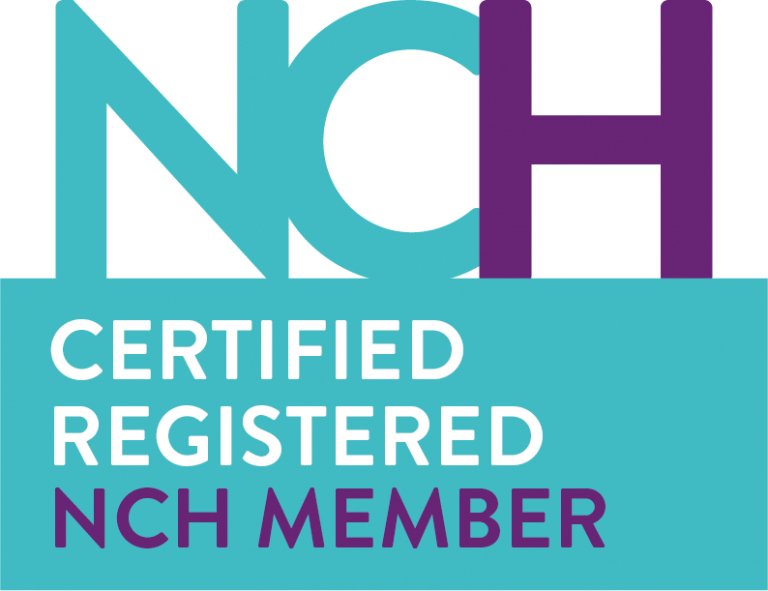How to Choose a Therapist?
By Jane Pendry, DFSH, HPD; Reg CNHC, AfSFH, MNCH, ABNLP, ABH, IARTT, CTAA, BA Hons, PGCE (Cantab).
How can you be confident your therapist is reputable, experienced and safe?
If you have ever had therapy, I wonder how you chose your therapist. Was it through a personal recommendation, a local wellbeing clinic, or by researching them online and checking that they are suitably qualified, accredited and insured? I hope it worked out well. But there are ways to reduce the risk if you know what to look for.
A Very Personal Choice
Choosing a therapist is hugely personal and it depends on so many factors. Your history of trauma, childhood limiting beliefs, attachment issues, your personal history, health challenges, hopes, ambitions and beliefs.
Your choice largely depends on the chemistry between you and the therapist.
A good therapist will not exert influence over you, creating unrealistic expectations, manipulating you, or filling you with false positivity or false hopes. A qualified, accredited therapist will never claim to ‘fix’ you. You are not broken!
Respecting your beliefs and values
The best therapist for you is the one who gets to know you as an individual, who wants to know your greatest hopes but doesn’t shy away from your fears. The person who is alongside you on your journey to finding your authentic self, aligned with your beliefs, values, unique skills - whether for a week or two, or many months.
Personal agency
Your ideal therapist ensures you retain personal agency - control over your fundamental right to make decisions for yourself.
Checking your Therapist’s Credentials
When choosing a therapist, it is worth reading reviews, blogs, or other details on their website but here are some important and fundamental things to also look out for, or to ask about before you start therapeutic work.
Has your therapist trained with a professional training body that is in itself accredited?
What sort of training have they had and are they skilled and experienced?
Is the accreditation body asking it’s members to meet the highest standards of ethics?
Is there a link to the accrediting body’s Code of Ethics on the website or in the Terms & Conditions?
Is your therapist insured?
Is your therapist DBS checked to work with children and vulnerable adults?
Trained, Accredited and Insured
Most training courses for complementary therapists involve hundreds of hours of practice, so even if they are a new therapist, they will have experience. That’s where accreditation comes in.
Trained professionals and accreditation
Every professionally trained therapist will be accredited by a professional body that ensures they abide by a stringent code of practice. The accrediting body will check that anyone applying to be accredited is suitably qualified, trained and insured, has committed to ongoing professional development or training, and keeps their insurance up to date.
You can find a full list of my accreditations at the bottom of the About Jane page with links to the accrediting bodies. This is the sort of thing you might look for on other therapists’ sites too.
DBS Checks
DBS checks enable therapists can work with children and vulnerable adults. The accrediting body will generally check that this is in place too.
Taking the Risk out of Choosing a Therapist
Now there will be amazing practitioners out there that do not fall under the umbrella of an accrediting body – from shamans to masseurs - that you personally value and trust. Sometimes a personal recommendation or gut instinct guides you. Therapists can practice with little or no accreditation or training. Some of these may be intuitive healers with great personal integrity, but some can actually cause harm.
Reducing risk
So if your therapist is accredited and can display their accreditations that provides some reassurance. In addition, membership of the Complementary & Natural Healthcare Council or CNHC reduces the risk still further, especially when there are no other reassuring factors to help you make a judgement, like a personal testimonial.
CNHC - The Gold Standard
I am delighted to be registered with The Complementary & Natural Healthcare Council. The Gold Standard accreditation for complementary therapists.
Your therapist may be qualified and accredited without being a member of the CNHC, but you know for sure that any therapist that is a member of this organisation has reached a high standard of training, and is already accredited with a relevant professional body.
What is CNCH?
The CNHC was set up by the Government to protect the public. They do this by providing an independent UK register of complementary healthcare practitioners. Their website states that, “Protection of the public is our sole purpose.”
The CNHC sets the standards that practitioners need to meet to get onto and stay on the register. All CNHC registrants have agreed to be bound by the highest standards of conduct and ethics. All of them are professionally trained and fully insured to practise and the CNHC checks qualifications and checks with the relevant accrediting body that the therapist is registered.
The CNCH Code of Conduct
The CNHC also has a role of investigating complaints about alleged breaches of their Code of Conduct, Ethics and Performance. They can impose disciplinary sanctions that mirror those of the statutory healthcare regulators.
Searching the CNHC Website
The CNHC website is accessible by the general public, who can search for registered Practitioners, or check that practitioners are members. See https://www.cnhc.org.uk/find-practitioner.
You’ll find me under Jane Pendry. However, you won’t see much detail so having satisfied yourself that a Practitioner is registered, you can explore that therapist’s website, and services with confidence.
A therapist may register one or more specialism
A therapist may be registered for one specialism, but have others that they practice. I am registered for Solution Focused Hypnotherapy, and The National Council for Hypnotherapy, having studied and gained two diplomas and completed thousand hours of practice among others.
Which kinds of therapists does the CNHC accredit?
The CNHC represents a wide range of organisations that practice or promote complementary health care, and often makes the case to government with the aim of enhancing the UK’s health and wellbeing. They raise awareness of complementary healthcare and seek to influence policy to increase access to the disciplines that have been registered with them.
So registration with CNHC is just another factor that can help you decide if a therapist is for you. It’s worth exploring their website to see just what their role is, and how they can help protect you and ensure that any therapy you undertake is safe. You will find Sense-Ability Hypnotherapy & Coaching listed there too. See https://www.cnhc.org.uk
Taking Personal Responsibility for your Health and Wellbeing
There is a growing recognition and appreciation that the NHS can only do so much. The role of the NHS is not to keep us all in tip top condition. They are there to help us when we are ill, and they often give useful and helpful advice to keep us well, but resources are limited.
Taking responsibility
Ultimately, we are, as much as possible, responsible for our own health and wellbeing. Investing in our mental and physical health increases the probability of a long and happy life. The NHS increasingly recognises that there is a role for complementary health practitioners in helping us achieve optimum health, and preventing us from developing serious health issues.
The Value of Complementary Therapy
Complementary Health Practitioners are particularly helpful in keeping us mentally healthy. Our minds are complex and vulnerable and any therapy that releases tension, reduces anxiety or soothes our troubles is going to help us stay mentally well.
However many people don’t realise that complementary therapies can also help to address quite challenging mental health issues too, including helping people overcome complex phobias, PTSD, C-PTSD and OCD, among other things. Bio-psychological conditions like IBS and GERD may be helped by complementary therapies, but not cured.
Choosing a Hypnotherapist
Hypnotherapy in particular seems to worry people. They are concerned about losing control or being manipulated. A trained and accredited hypnotherapist cannot do that, and would not do that.
There are a few accrediting bodies for hypnotherapy including the National Council for Hypnotherapy and the Association for Solution Focused Hypnotherapists.
Stage hypnosis uses quite different techniques. Clinical hypnotherapy has been structured to ensure clients stay in control, and is safe at all times. If that wasn’t the case, the CNHC simply would not allow hypnotherapists to join their organisation.
There are few contraindications for hypnosis but untreated psychosis is one because there is a risk of a client losing touch with reality. In this case, therapies that ground people in the present are more suitable.
In general, however, hypnotherapy is a safe ‘do no harm’ therapy. You can find out more about hypnosis and hypnotherapy in particular in Sense-Ability’s Frequently Asked Questions.
A Checklist for Choosing a Therapist
In Summary
Research your therapist before you start.
Ensure you understand what therapy or therapies are available and decide whether they might be right for you;
Ensure the therapist is accredited if possible - the accrediting body will have checked any qualifications are relevant, and of the right standard, and that appropriate liability insurance is in place. Check therapist accreditations and qualifications are clearly communicated on the therapist’s website.
Beware of any complementary therapist who promises to cure, fix or diagnose. These are false promises and claims. Complementary therapies support our bodies’ own healing processes and outcomes cannot be guaranteed.
Read through, or at least scan, the main accrediting body’s ethics and standards. Therapists, regularly study the ethical guidelines, reflect on their practice and bring questions to supervision.
Look for a therapist who has a niche or specialism that relates to your issue. If your therapist’s areas of interest aligns with your hopes and desired outcomes, it will give you so much confidence.
The Initial Consultation
The initial consultation is a chance for clients to explore a therapy and see if it’s right for them. It’s not a sales platform! if you feel pressured or manipulated, that’s poor practice.
Questions to Ask in the Initial Consultation
Here are some questions you might ask in the initial consultation to help guide you. Remember the initial consultation is a chance to make sure that you and the therapist will be a good fit and you are under no obligation to continue therapy.
Discuss expectations and outcomes so you can ensure therapists have the right skills and experience to help you, and that your expectations are realistic and achievable.
Ask the therapist if it would be okay to discuss anything that makes you feel unsafe or uncomfortable in session so you can make changes. For example assuming a partner is a he, not a she, is a prejudice that is likely to break trust.
Above all - trust your instincts and feelings. Much of the benefit of therapy is in the quality of the therapeutic alliance - feeling safe, being believed, trusting, feeling liked and respected but knowing their are professional boundaries. Discuss your issues and hopes openly and see how the therapist responds - with kindness, compassion and warmth? Or with judgement, assumptions and coolness?
If something ‘feels off’ or you feel the therapist has an inherent bias, is not listening, is not respectful, is on a power kick, or does not have your best interests at heart you can’t quite put your finger on it, then they certainly aren’t the right therapist for you.
Good luck finding the right therapist for you.
For further details about me and my practice, see: www.sense-ability.co.uk or click the home page.
Jane Pendry
Sense-Ability Hypnotherapy & Coaching
jane@sense-ability.co.uk
07843 813 883



